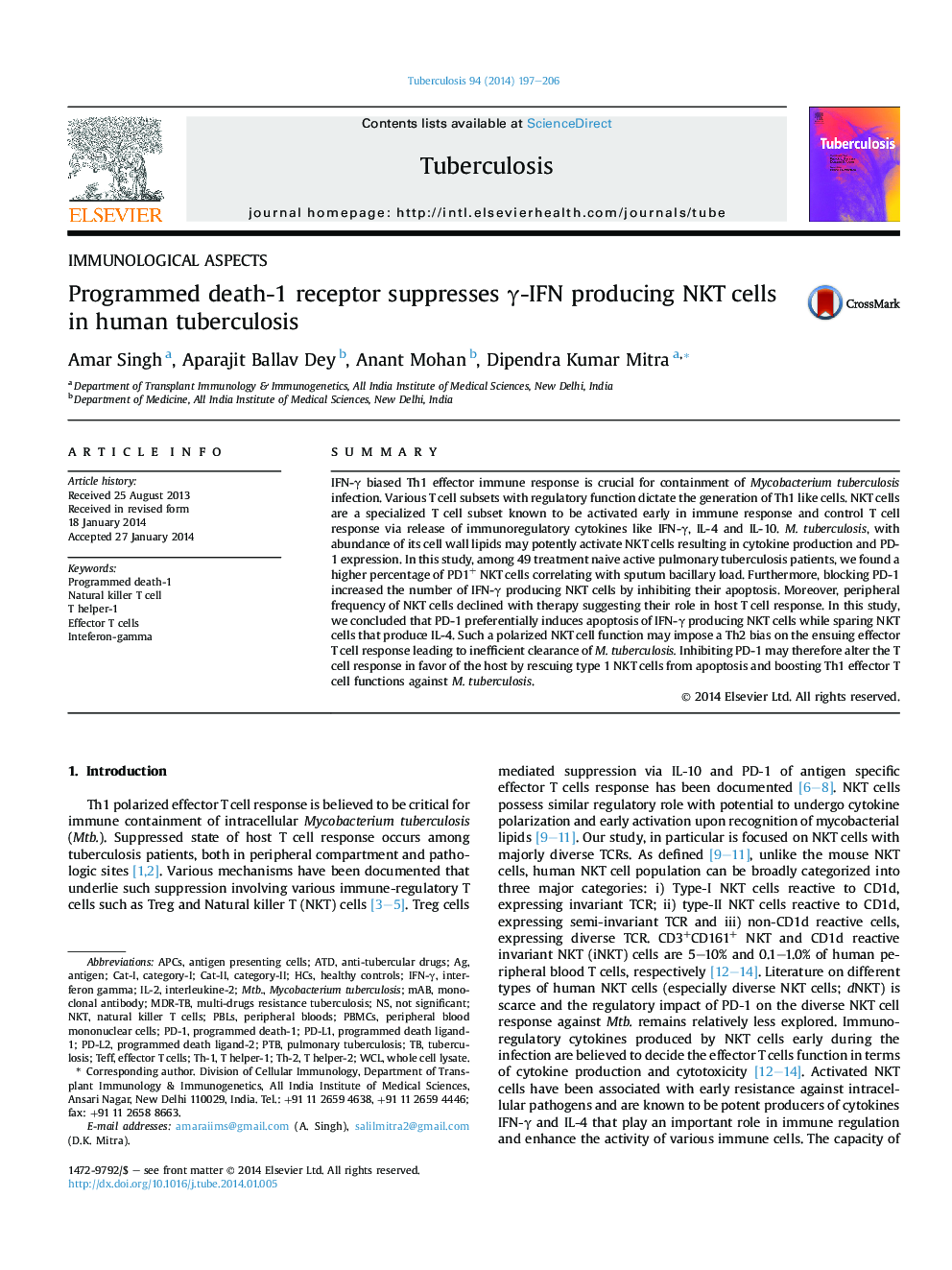| Article ID | Journal | Published Year | Pages | File Type |
|---|---|---|---|---|
| 10962147 | Tuberculosis | 2014 | 10 Pages |
Abstract
IFN-γ biased Th1 effector immune response is crucial for containment of Mycobacterium tuberculosis infection. Various T cell subsets with regulatory function dictate the generation of Th1 like cells. NKT cells are a specialized T cell subset known to be activated early in immune response and control T cell response via release of immunoregulatory cytokines like IFN-γ, IL-4 and IL-10. M. tuberculosis, with abundance of its cell wall lipids may potently activate NKT cells resulting in cytokine production and PD-1 expression. In this study, among 49 treatment naive active pulmonary tuberculosis patients, we found a higher percentage of PD1+ NKT cells correlating with sputum bacillary load. Furthermore, blocking PD-1 increased the number of IFN-γ producing NKT cells by inhibiting their apoptosis. Moreover, peripheral frequency of NKT cells declined with therapy suggesting their role in host T cell response. In this study, we concluded that PD-1 preferentially induces apoptosis of IFN-γ producing NKT cells while sparing NKT cells that produce IL-4. Such a polarized NKT cell function may impose a Th2 bias on the ensuing effector T cell response leading to inefficient clearance of M. tuberculosis. Inhibiting PD-1 may therefore alter the T cell response in favor of the host by rescuing type 1 NKT cells from apoptosis and boosting Th1 effector T cell functions against M. tuberculosis.
Keywords
HCsPTBPBLsNKTWCLTh-2MDR-TBPBMCsIL-2IFN-γPD-L2Th-1APCsPD-L1PD-1mAbATDMonoclonal antibodyAntigen presenting cellsInterleukine-2TuberculosisTeffAnti-tubercular drugsPulmonary tuberculosisnatural killer T cellnatural killer T cellsperipheral blood mononuclear cellsEffector T cellswhole cell lysateProgrammed death ligand-1Mycobacterium tuberculosisProgrammed death-1not significantAntigenhealthy controlsInterferon gamma
Related Topics
Life Sciences
Immunology and Microbiology
Applied Microbiology and Biotechnology
Authors
Amar Singh, Aparajit Ballav Dey, Anant Mohan, Dipendra Kumar Mitra,
